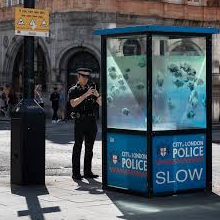
Librarians warn of a democratic collapse as federal defunding, political interference, and rising censorship endanger vital public institutions
Librarians across the United States are confronting a growing crisis, as the second Trump administration’s policies begin to reshape public institutions long viewed as essential to democratic life. Already overwhelmed by staffing shortages, burnout, and book bans, library workers now describe a new chapter of financial strain and political hostility.
Rebecca Hass, outreach manager at a Maryland library, has witnessed first-hand how the effects of federal policy ripple through local communities. “When people are laid off, when they’re confused, when they need support—they come to us,” she explained. Hass noted increasing tensions over LGBTQ+ programmes and a sharp rise in demand for social services like food pantries and immigration resources. “We’ve always done this work. But now it feels more urgent—and more precarious.”
The pressure is mounting from multiple directions. In several states, libraries are facing pre-emptive censorship measures, with staff removing or hiding controversial titles to avoid confrontation. One librarian from the Deep South, who requested anonymity, called it a strategy of survival. “But when we hide, it’s marginalised people who suffer most—those of us who can’t erase our identity.”
Imani, an academic librarian in Texas, has seen diversity, equity, and inclusion (DEI) programmes quietly dismantled. Now, budget scrutiny has intensified, especially for resources like digital databases. “None of this is new,” she said. “Many librarians have spent years trying to hold things together with almost no funding and increasing demand.”
This escalating crisis has been compounded by a major blow: the gutting of the Institute of Museum and Library Services (IMLS), once a crucial source of national library funding. A letter obtained by independent journalist Marisa Kabas confirmed that state grants were terminated with immediate effect, under the leadership of Keith Sonderling—a Trump appointee who vowed to restore “patriotism” to the agency.
The move jeopardises programmes like veterans’ telehealth services, children’s reading initiatives, and rural broadband access. While day-to-day library funding comes from local taxes, the IMLS’s federal grants filled critical gaps across all 50 states.
Jessamyn West, a librarian working in Vermont, said the $280m IMLS budget request for 2025 is minuscule compared to broader federal spending—but vital. “Libraries are going to have to make brutal choices. The impact will be national.”
As frustrations grow, some staff have taken to social media, including the IMLS’s own channels, to highlight the devastation. But according to Emily Drabinski, a professor and librarian in New York, these funding cuts risk bringing entire systems to a standstill. “We’re losing ebook platforms, interlibrary loans—everything that keeps libraries connected.”
Drabinski sees the broader struggle as part of a shared worker reality. “We face low pay, shrinking autonomy, and external forces telling us how to do our jobs. And yet we’re expected to do more—without the means to do it.”
With services vanishing in communities from Kentucky to North Carolina, librarians are sounding the alarm. They warn that the loss of libraries is not just a policy failure—it’s a threat to the public’s right to knowledge.
“We want people to have enough. To be able to read. To belong,” said Drabinski. “We are fighting for the same rights as every other worker—and for the future of our democracy.”












